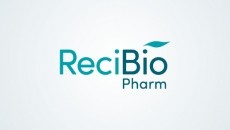Pfizer spies pSivida's injectable eye treatment
technology, signing a research and licensing deal worth $165m
(€123.5m) and focusing keenly on the company's Medidur technology
for new ophthalmic applications.
The Medidur product, currently in Phase III trials, is a tiny injectable device 3mm long and 0.37mm in diameter. The insert is being studied as a way of delivering fluocinolone acetonide (a corticosteroid) to treat diabetic macular edema (DME), and has been designed to last 18 to 36 months in the eye, releasing controlled amount of drug into the eye daily. According to current licensees Alimera Sciences, the Medidur product releases the smallest amount of drug currently available for treating DME, with 0.2 or 0.5 micrograms of drug delivered to the retina each day. Under the terms of the Pfizer/pSivida agreement, pSivida will receive up to $155m in development and related milestones, and the two companies will work together to develop ophthalmic products based on the company's sustained drug release technology. Pfizer will fund the joint research programme. Pfizer will have an exclusive license to market all products developed as part of the research partnership in ophthalmic applications, and while paying pSivida a royalty on net sales the company can also terminate the agreement on 60 days notice without cause. pSivida also has another proprietary drug delivery technology, BioSilicon, based on nanostructured porous silicon which is currently being evaluated by five undisclosed global pharma companies for the controlled release of compounds from injectable formulations. The company is currently exploring ways of applying the BioSilicon technology, currently in Phase I trials, to drug delivery treatments to the back of the eye. In January last year the, pSivida's licensing partner Alimera announced several new agreements concerning Medidur - involving "three of the five largest global pharmaceutical companies" - to evaluate the technology to release developmental compounds for the treatment of other eye diseases. pSivida has been working with Alimera Sciences, a pharmaceutical firm specialising in the ophthalmic industry, to develop and market Medidur for DME since 2005. There are currently no treatments available for DME that have US Food and Drug Administration (FDA) approval, and with the Medidur product having been granted fast-track status by the FDA the companies could be backing a winner that will give them an edge in an underserved market. At present, the only approved option for patients suffering from DME involves laser photocoagulation therapy, which can leave irreversible blind spots. So for the half a million treatable cases of DME in the US alone, an alternative therapy would seem to have fairly open market for the time being. Another major pharma, Eli Lilly, was only last month forced to hold back plans for its drug Arxxant (ruboxistaurin), an oral therapy intended to treat blindness caused by diabetes. Following FDA claims that the drug, which the company had been working on for ten years, was not up to scratch, Lilly withdrew its approval application for the product in the EU. With some analysts forecasting that Arxxant would be a blockbuster with sales of around $1.1bn by 2010, the news would have hit the company hard - but could be music to the ears of other pharmas developing treatments for diabetes-related eye complications. Pfizer already has a few ophthalmic products on the market, Xalatan (latanoprost) for open-angle glaucoma or ocular hypertension, and Macugen (pegaptanib sodium) for age-related macular degeneration (AMD). The company received approval for Macugen in the EU in January 2006, and is currently in negotiations to return the US rights to the product to its alliance partner OSI Pharmaceuticals in exchange for a royalty-free license to market Macugen outside the US. In addition to Xalatan the company also has Xalacom, the only fixed combination prostaglandin (Xalatan) and beta blocker, which is primarily available in European markets also for glaucoma and ocular hypertension. Combined, Xalatan and Xalacom generated almost $1.5bn for the company over 2006.








